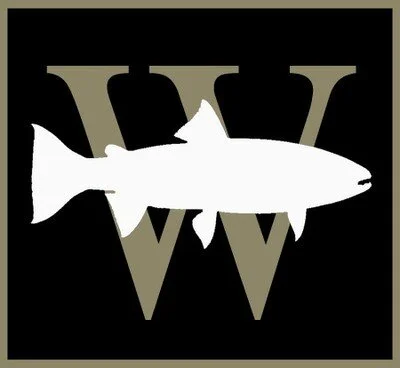"In wildness is the preservation of the world." -Henry David Thoreau
Thanks to the unflagging efforts of conservationists, vast areas of wilderness containing the last remaining intact ecosystems on Earth still remain in the United States and around the planet. Continued protection of these special places for current and future generations depends on the action we take now. Therefore, for every purchase you make, 5% of the gross sale will be donated one of three conservation organizations of your choice. Details about these incredible organizations can be found below.
Conservation Northwest
For more than 25 years, Conservation Northwest has been a powerful force for the protection and restoration of Washington's wild landscapes and the wildlife that inhabits this beautiful region. Their efforts have resulted in the protection of hundreds of thousands of acres of wildlands and habitat throughout the Northwest. Connecting landscapes, wildlife and the people who call this incredible place home. Some of Conservation Northwest's achievements include:
Protection of 25,000 acres of critical Canada lynx habitat in north-central Washington's Loomis State Forest
Documented the first wolf pack returning to Washington in 2008 using remote cameras. And have since helped create a wolf recovery plan for the state, working on solutions to improve the outlook for wolves, ranchers, and others
Won protection for Canada lynx under the Endangered Species Act
Helped reintroduce the Pacific fisher to the Olympic Peninsula
Protecting forests and connecting habitat in Washington's Columbia Highlands, an essential region connecting the Cascades and Rockies
For more information about Conservation Northwest's exceptional work, please visit their website.
Wild Fish Conservancy Northwest
Over the past several decades, wild fish populations have continued to decline in the face of habitat loss, commercial and sport harvest management, and hatchery practices. Since its inception in 1989, Wild Fish Conservancy Northwest, a Washington-based non-profit, has dedicated itself to the preservation and recovery of native fish ecosystems in the Pacific Northwest. Through research and advocacy, Wild Fish Conservancy Northwest works to improve habitat and reduce pressure on wild fish through improved land-use, harvest and hatchery management.
Some of the Wild Fish Conservancy Northwest's achievements include:
Increased transparency around salmon harvest management, fighting against increases in allowable harvest for declining salmon populations
Strengthened land-use and water-quality regulation
Improved hatchery management
Corrected misidentification of thousands of fish-bearing streams in Washington, qualifying them for deserved legal protection
Conducted field research on the status and recovery of wild fish populations
Designed and implemented innovative habitat restoration projects
Provided opportunities for individuals and communities to get meaningfully involved in recovery and environmental protection
For more information about the Wild Fish Conservancy Northwest's endeavor to protect precious native fish ecosystems, please visit their website.
The Wilderness Society
Since it's inception in 1935, The Wilderness Society has been the vanguard of nearly all major public lands battles and landmark victories, preserving the United States' rich natural legacy for future generations. The Wilderness Society's tireless work has led to the protection of nearly 110 million acres of wilderness in across 44 states. From the momentous passage of 1964's Wilderness Act, which created the National Wilderness Preservation System, to the recent Public Lands Omnibus Act in 2009, part of which expanded wilderness areas in nine states, The Wilderness Society continues to preserve our exceptional wildlands for generations to come. Some of The Wilderness Society's achievements include:
Major role in protecting nearly 110 million acres as designated wilderness
Passage of the landmark Wilderness Act of 1964, creating the National Wilderness Preservation System
Numerous additional bills including the Wild and Scenic Rivers Act (1968), National Forests Management Act (1976), and the Public Lands Omnibus Act (2009)
For more information about The Wilderness Society's continuous efforts, please visit their website.



